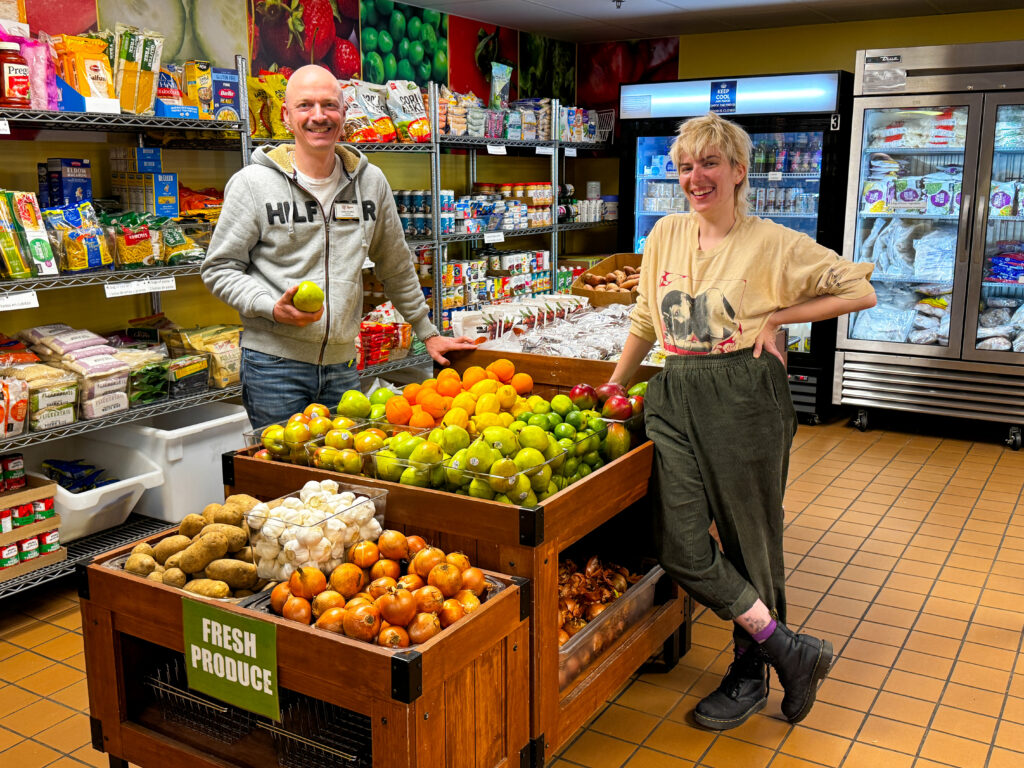
Featuring The Aliveness Project, a partner food shelf of The Food Group
June is Pride Month, a time to celebrate the innovations and leadership of LGBTQIA+ people and organizations. From farming to advocacy to anti-hunger work, LGBTQIA+ people are creating change and making waves across Minnesota’s food system.
We’re honoring Pride with a look at how food insecurity impacts LGBTQIA+ Minnesotans and how The Food Group’s longtime food shelf partner, The Aliveness Project, is responding to the need.
From Potluck to Wraparound Network
For the past 40 years, The Aliveness Project has supported people living with and at risk of HIV through transformative resources and direct services. In 1985, the founders of The Aliveness Project came together wanting to support their loved ones living with HIV/AIDS and struggling with basic needs.
A humble potluck eventually grew into a wraparound network of services, including a food shelf, housing help, HIV testing, and more. The Aliveness Project has retained deep roots in the LGBTQIA+ community in Minnesota. Today, they provide a critical space for LGBTQIA+ Minnesotans in need of food, community, and supportive services.
A Decades-Old Collaboration
The Food Group partners with 191 food shelves regionally to source and distribute free and affordable food. We also partner with food shelves statewide to provide technical assistance, grants, and support.
For decades, The Food Group and The Aliveness Project have collaborated to provide nutritious food to community members. The Aliveness Project Food Shelf Manager Andrei Korotkov (he/him) commented:
The Food Group really helps us. Without you, we cannot do this… When I do our order every week, The Food Group always has some free items for us. Ordering from you helps save money for The Aliveness Project.
The Aliveness Project is a tried and trusted resource for LGBTQIA+ community members in need of food assistance. We are proud to partner in their effort to bring nutritious, culturally connected food to LGBTQIA+ community members and people living with or at risk of HIV.
Barriers to Food Access for LGBTQIA+ Minnesotans
LGBTQIA+ people are disproportionately impacted by food insecurity. A 2019 study by Oregon Food Bank found that 27% of LGBTQIA+ people reported a lack of food compared to 17% of straight or cisgender Americans. LGBTQIA+ people receive SNAP benefits at twice the rate of straight or cisgender people.
Andrei said that LGBTQIA+ people are also frequently displaced from their homes at a young age. For some unhoused community members, he added, The Aliveness Project is their only food source.
Some LGBTQIA+ people are hesitant to use religiously affiliated food assistance due to fear of discrimination. The Aliveness Project is proud to offer a safe and welcoming space for everyone. Luna, a member of the LGBTQIA+ community in Minnesota, observed:
To be queer here at Aliveness Project is to be able to be your true genuine authentic self without feeling any judgment. It gives me a sense of safety.
Supporting LGBTQIA+ Community Members Through Food
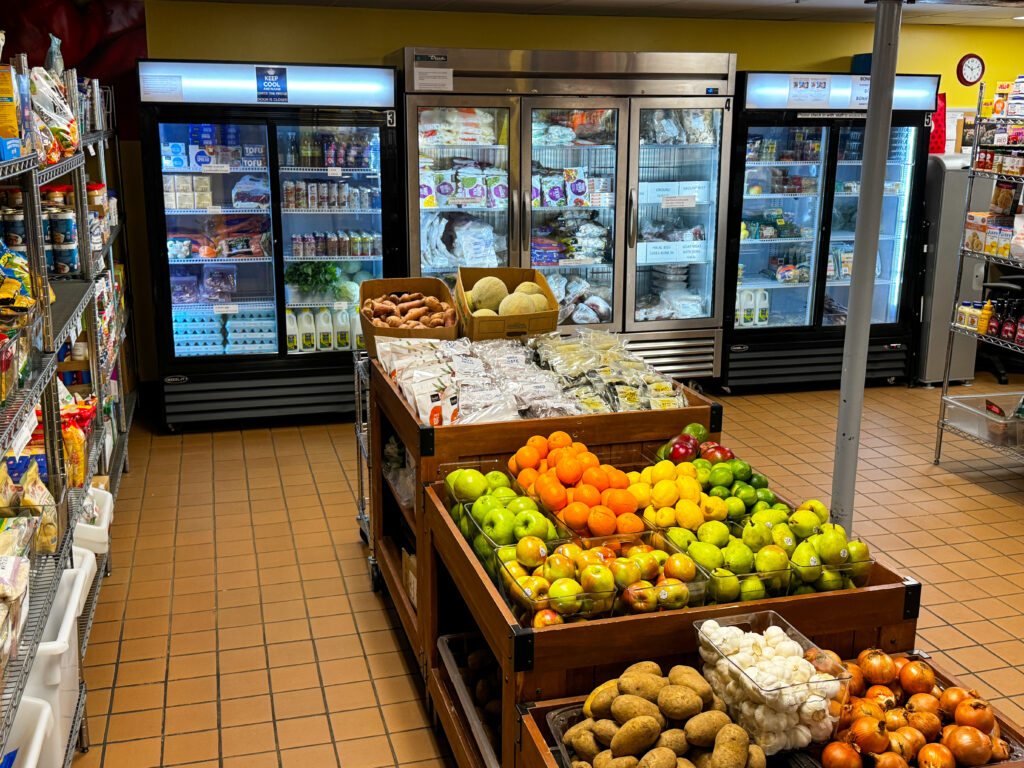
The food shelf was born in 1993. It works in tandem with their meal program, allowing members to make a monthly appointment and select up to 65 pounds of groceries. The food shelf and meal programs have remained a cornerstone of their basic needs work. Andrei explained how the food shelf supports LGBTQIA+ community members and people living with HIV in many different situations:
People can’t live without food. It helps people who are sick, people who are homeless, people who are not homeless. Food is needed for everyone, especially for people who live with HIV.
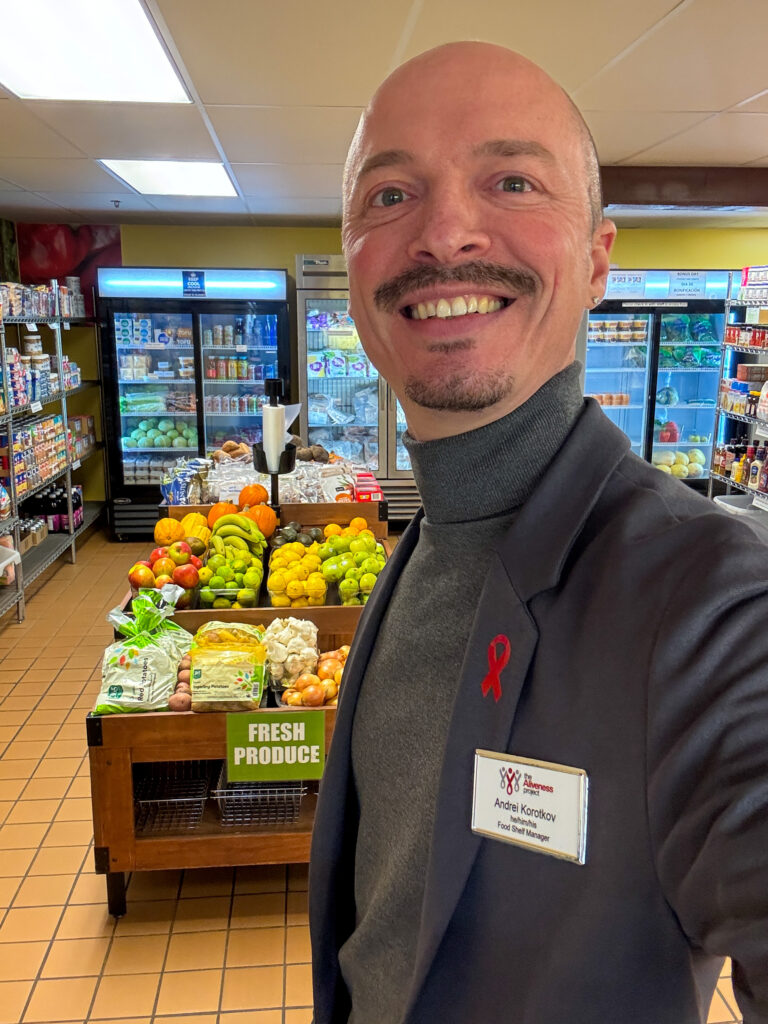
Andrei immigrated to the Unites States from Russia in 2018 and began volunteering with Aliveness Project in 2019 before becoming food shelf manager. He’s always most inspired by the joy he sees in community members’ faces:
I get to see members happy after what they have experienced in their lives. They are so happy after getting an apartment or getting food.
Meeting A Growing Need
The service gap for LGBTQIA+ Minnesotans grew unexpectedly wider last year when Rainbow Health, a nonprofit organization serving the LGBTQ+ community, closed:
Our kitchen is cooking more… we have more members right now and more people come over [to the food shelf] every time.
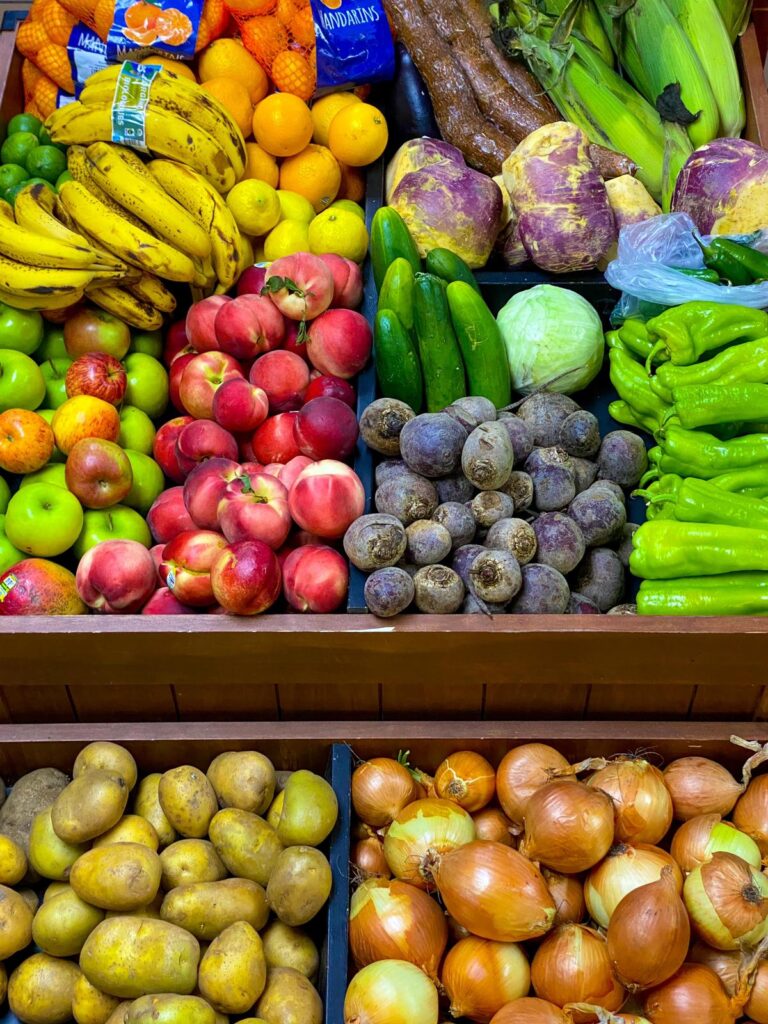
The increased need among LGBTQIA+ community members mirrors statewide trends. Normally, The Aliveness Project takes 18 food shelf appointments each day. These days, they are sometimes taking between 20 and 25 depending on case manager capacity.
The Aliveness Project also offers a semiweekly “bonus day.” On Tuesdays and Fridays, members can come without appointments and take food—often specialty items like fruit or muffins—donated by The Food Group, other food banks, or grocery stores.
The Aliveness Project purposefully uses a choice model which “allows members to select foods that meets their individual dietary needs and culturally specific food preferences.” This model, Andrei said, “gives members the agency to make their own decisions.”
Food Stability Builds Resilience
The Aliveness Project understands that food access increases people’s capacity to deal with other challenges. Andrei explained:
When people have food and when they aren’t hungry, they can do something to figure out their problems and next steps with their home or with insurance. But food is most important.
Andrei shared an example from his own culture. Because of Russia’s history with famine:
It’s very important if someone comes over with a problem, you must feed them first. After, you can talk about the problem. Because if someone’s hungry, they can’t think.
Making Participants Feel at Home
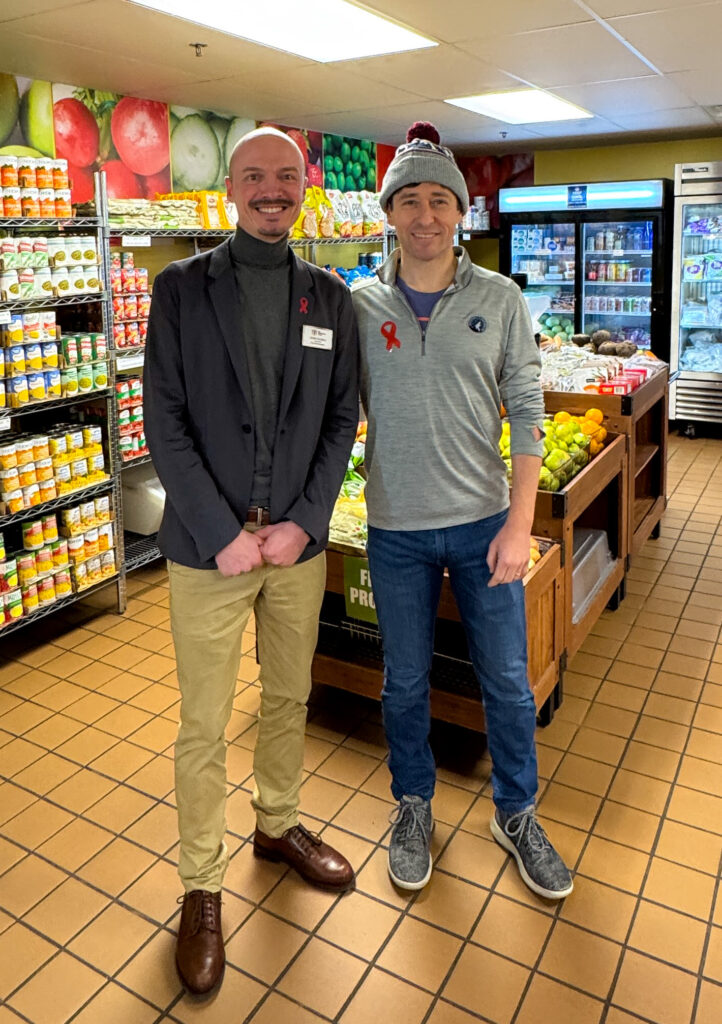
The Aliveness Project strives to make everyone feel at home. Language is a big way staff connect with food shelf visitors. Between Andrei and his two assistants at the food shelf, they speak Russian, Chinese, Spanish, and French. Andrei commented:
We have a lot of members that speak Spanish, and it makes them so happy when we can explain in their native language.
He and his team also work hard to stock culturally connected foods for communities disproportionately impacted by HIV such as barley, curry powder, avocado, corn tortillas, jalapeños, and yams.
Celebrating Pride
LGBTQIA+ people face unique barriers to accessing food. The Food Group is committed to supporting communities disproportionately impacted by food insecurity, so that everyone can access nutritious, culturally connected food.
We are honored to partner with The Aliveness Project in bringing quality, culturally connected food to our LGBTQIA+ neighbors. This Pride month and always, we are grateful for organizations like The Aliveness Project serving LGBTQIA+ Minnesotans through holistic services, welcoming spaces, and bold advocacy.
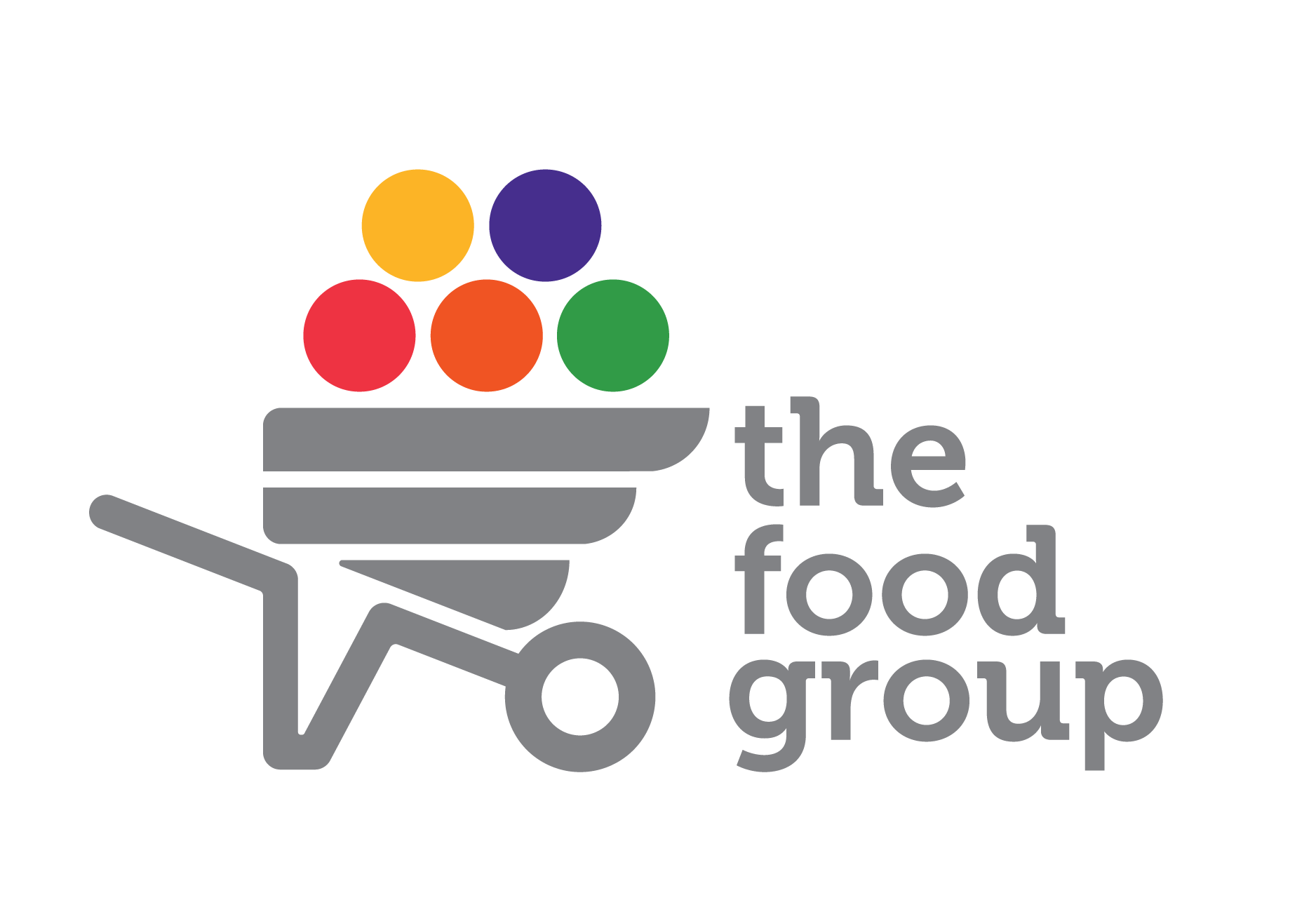

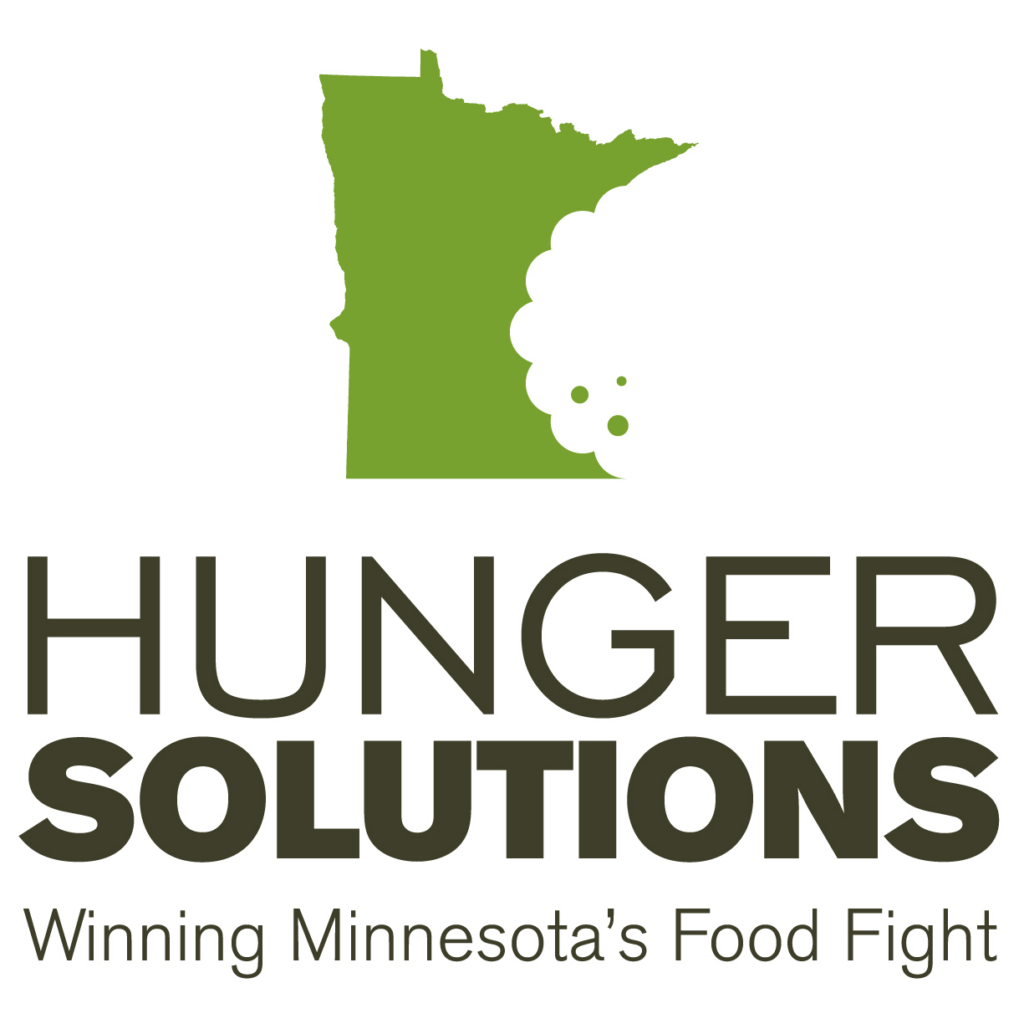
You must be logged in to post a comment.